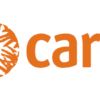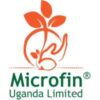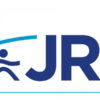Job: Analyst- Revenue Assurance Operations Support
Reporting to: Manager-Revenue Assurance Operations Support
Division – Finance
No. of Vacancies: 1
Main Purpose of the Job
- To improve revenues and profitability through the complete assurance of revenues and minimization of leakage
- To support the local OPCO operations infrastructure for the performance of Revenue Assurance controls within MTN
- To support the performance of the control environment in an effective and efficient manner
- To support the incident management process relating to revenue and cost-impacting issues within MTN
- To support overall Revenue Assurance Shared Service operational performance and interfaces to customers (MTN operations)
Prime responsibilities of the positions:
- Provide input into RAFM strategy aligned with the overall MTN strategy
- Engagement with OPCO Controls and Process DA to understand the risk and control framework for MTN RA operations.
- Working with OPCO Controls and Process DA to provide input into new control design required for operational implementation.
- Support of the process for implementation, ensuring:
- Requirements are clearly defined and agreed
- Solution design is compliant
- Testing is performed
- Implementations of the controls is achieved in terms of time and quality
- Input to planning the RAFM execution of the operational framework, ensuring budget, time and capacity considerations are balanced with stakeholder and customer needs.
- Undertaking of the local RO RAFM control performance , ensuring:
- Timely receipt of data from all source systems
- Validation of the accuracy and completeness of data from all source system
- Control execution per the agreed schedule
- Analysis of control results to identify exceptions
- Root cause analysis to identify issues and incidents
- Management of the suppliers, customers and stakeholders in the performance of operational controls to ensure service levels are achieved and managed.
- Support of the incident management process for responsible operations, including escalation management. This includes:
- Issue review and approval of SSH raised incident reports
- Issue analysis, confirming the nature and impact of the incident
- Logging of the local RO control issues in the prescribed manner, format and system
- Quantification of the leakage risk relating to the incidents identified
- Management of the incident resolution workflow, ensuring local operations have taken responsibility for resolution
- Escalation and communication of the impact of the issues to Group and local management and executives
- Oversight of the incident resolution, ensuring service levels have been met.
- Incident resolution and closure management, including final quantification and benefits identification.
- Involvement, as key customer in the specification, evaluation, design and implementation of technologies
- Support of interface with RAFM Group Technical Assurance and local IS departments
- Managing the data quality issue resolution for the local OPCO with data owners.
- Input of operational improvements required to reduce and mitigate risks identified
- Ongoing support of internal improvement roadmap to ensure a cycle of review and improvement exists within the team
- Support for control gap closure, control quality and risk reduction improvement delivery
- Reporting of improvement results and residual risk levels
- Support for the framework development for the supply and performance of services from and to these customer and stakeholders
- Supporting operational relationships with management within these customer and stakeholder communities to ensure performance is regularly reviewed, improved and managed
- Support Fraud Management with investigations where required
- Highlight any findings to Fraud that requires Fraud to investigate
- Awareness of audit supplier expectations in relation to audit plans and approach
- Providing audit support provided to auditors during the performance of the audit
Support the education of internal customers on the role of RA – through the RA Governance forums – and how they may contribute
The applicant must possess the following;
Education:
- Essential – University Undergraduate Degree – B.Comm/B.Acc/LLB/BSC
- Preferable – CISA/CISM qualification.
Experience:
- At least 2 years of experience in a complex, technology-oriented industry
- A good appreciation of telecommunications technology
- At least 2 years of working knowledge with internal control and governance systems and environments is essential
- At least 2 years of data analytics experience
Training
- Standard desktop systems training – Microsoft Office applications
- Telecommunications technology training would be advantageous
- Audit training advantageous
Competencies:
Audit and Assurance – Control Design – Basic Level
- Applies basic control design principles in daily work. Includes: Source data quality validation, control timing and frequency verification.
Audit and Assurance – Planning – Basic Level
- Plans their own work within an audit plan to meet timeliness and quality requirements.
- Reactive in nature of involvement in the planning process.
Audit and Assurance – Control Evaluation – Basic Level
- Assesses the suitability and effectiveness of controls performed oneself during the course of daily activities.
- Evaluation leads to on-going improvement.
- Evaluation generally reactive in nature.
Data Management and Analysis – Data Appreciation and Design – Intermediate Level
- Has an appreciation of the data held within source systems within role and related roles
- Includes where information is held, how data is structured and has a basic understanding of the relationships within the systems that are utilized by the individual.
- Has a basic understanding of data model techniques.
Data Management and Analysis – Information Extraction Techniques – Basic Level
- Understands the system source data for control purposes.
- Has a basic understanding of the methods of data collection for purposes of role.
- Manages the collection and scheduling of information in relation to control source data.
- Manages issues in relation to data collection routines.
- Ensuring data quality criteria for control source data are defined and met on a daily basis.
Data Management and Analysis – Data Modelling and Manipulation – Basic Level
- Has a basic understanding of data fields in a data source and how these relate to the control being implemented.
- Interprets the fields and values within a data source, in relation to the control and business objective being validated.
- Is able to define a basic data model that the control output should include that allows for data analysis.
- Can design analysis of data that provides for basic two dimensional data analysis allowing for control output analysis.
Technology Appreciation and Application – Network – Intermediate Level
- Knowledge of network principles, systems and interconnectivity allows the individual to perform role without constraint.
- Applies this knowledge in an integrated manner.
- Can support the individual in assessing the functioning of the environment to support revenue assurance objectives.
Technology Appreciation and Application – Information Systems – Intermediate Level
- Has a working knowledge of Information technology systems, as far as software logic, reference data and interconnectivity of systems is concerned.
- Can apply this knowledge in performing their Revenue Assurance task, with the ability to identify the source of problems.
Operations Management – Control Operation Efficiency – Intermediate Level
- Control operations are performed with a level of automation that allows the individual to utilize spare capacity to other value adding activity.
- Understands the control operation sufficiently well to understand gaps and required improvements.
- Some further room for improvement exists within the operational task management.
Operations Management – Problem Solving – Basic Level
- Manages problems through operational-level issue delegation and follow-up.
- Understands the nature of issues and interacts the problem owners to resolve them to time and quality.
Operations Management – Decision Making – Basic Level
- Decision making relates to the individual role performed.
- Decision making is performed through use of information produced within the role.
- Decision making is restricted to immediate actions the individual requires as part of a pre-defined process.
Decisions tend to involve management review and approval.
Reporting and Measurement – Report Design and Modelling – Basic Level
- Information produced based on predefined templates supplied.
- Information is largely operational in nature and data presentation includes both numerical and graphical information.
Reporting and Measurement – Reporting Operational Effectiveness – Intermediate Level
- Reporting production produced with a level of automation that allows time for information analysis and commentary.
- Information gathering and collation tasks have evolved to the point where efficiencies have been achieved to a moderate degree
Reporting and Measurement – Decision Support and Reporting Communication – Basic Level
- Individual provides information to report owner with limited involvement in the presentation and communication of information.
Project and Change Management – Project Planning and Design – Basic Level
- Project planning includes multiple deliverables, which are designed with time and resource constraints.
- Includes resource and capacity planning and dependencies that are structured against a timeline for departmental needs.
Project and Change Management – Project Delivery – Basic Level
- Management of project activities performed as part of role.
- Tracking of milestone delivery and slippage performed at a basic level.
- Risk and issue analysis performed at a basic level for activities within a department or role.
Project and Change Management – Change Management and Assurance – Basic Level
- Involved in change projects for the role performed.
- Impact assessment performed for role, based on nature of change project.
- Requirements, solution design and delivery management involvement limited to specific user role, supported by project leads and team. Reactive in nature.
Finance and Accounting – Financial Accounting – Basic Level
- Understands the basic structure of the general ledger and subsidiary ledgers
- Understands the principles of a revenue and cost of sales double entry in relation to the general ledger.
- Financial accounting awareness extends to include the concepts of deferred revenues, accruals and the relationship between billing systems and financial accounting systems.
Finance and Accounting – Management Accounting – Basic Level
- Understands the basic structure of the profit and loss account.
- Appreciation of revenue and cost of sales impacts to profitability.
Click Here to Apply
More Information
- Salary Offer 0-ush50000000 USD 0-ush50000000 Month
- Address Kampala, Kampala, Uganda











